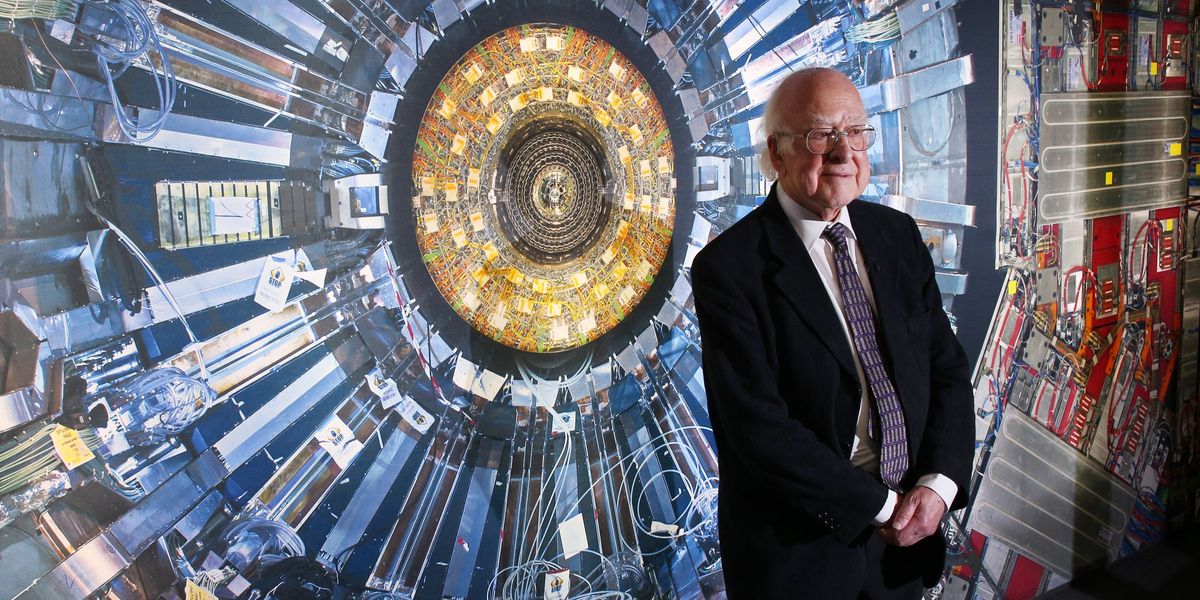



Peter Higgs, the physicist and Nobel prize-winner who discovered a new particle - the Higgs boson - has died aged 94.
Higgs had been handed the gong in 2013 for his 1964 work which proposed how the Higgs boson particle gave other particles their mass - binding the universe together.
Experiments on his work began in 2008, and his theories were finally proved in 2012 by scientists at Switzerland's Large Hadron Collider (LHC).
A year later, he shared the Nobel prize for physics with the Belgian theoretical physicist François Englert, whose work - also in 1964 - contributed to the Higgs boson's discovery.
Professor Peter Mathieson, Principal of the University of Edinburgh, where Higgs spent the majority of his career, said: "Peter Higgs was a remarkable individual - a truly gifted scientist whose vision and imagination have enriched our knowledge of the world that surrounds us.
"His pioneering work has motivated thousands of scientists, and his legacy will continue to inspire many more for generations to come."
Higgs was born in Newcastle-upon-Tyne in 1929, before his family moved to Bristol when he was a child.
As a pupil at Cotham Grammar School, Higgs won a litany of prizes - though none for physics. He became inspired by theoretical physicist Paul Dirac, eventually leading him to pursue a PhD at King's College London before moving to Edinburgh to teach.
It was in the Scottish capital that Higgs began his work on the particle which would one day bear his name - but other scientists looking to prove its existence did not begin the bulk of their research until the last few decades.
Researchers at Cern, the physics research centre in Geneva, Switzerland, had not been able to discover the Higgs boson at the LHC's forebear, the Large Electron–Positron Collider (LEP); its elusiveness soon made it one of science's most sought-after discoveries.
But in July 2012, physicists at the LHC announced the discovery of a particle consistent with the Higgs boson - Higgs had been in Geneva to receive the news, which soon prompted calls for a Nobel prize and a knighthood.
Following the discovery, Higgs told reporters: "It's very nice to be right sometimes."
